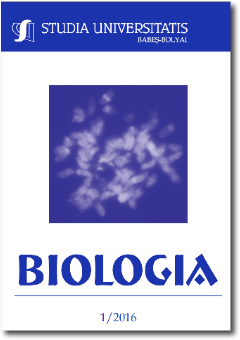Physiological Effects of the “in Vitro” Culture on Explants Belonging to “Solanum” Genus
Abstract
A large variety of secondary metabolites are responsible for specific defense mechanisms against stress factors in plant tissues. Among them, phenols and thus flavonoids play an important role, due to their strong antioxidant activity and the fact that their quantity is rapidly increasing if a specific stressful factor appears in the environment. In this context, we evaluated the physiological effects of the in vitro culture on explants, by quantifying the total polyphenolic content (TPC), the total flavonoid content (TFC) and the antioxidant activity (AA), both under in vitro and ex vitro conditions. Our experiments were performed on 2 closely related species of potato: the wild species S. bulbocatanum and the potato commercial cultivar S. tuberosum 'Rasant' and on two somatic hybrids between them, obtained through protoplast electrofusion. The Folin-Ciocalteu method, the aluminum chloride colorimetric method and the ABTS assay were used to determine the TPC, TFC and AA respectively. Our results prove that both TPC and AA are increasing under optimized in vitro conditions, but TFC is lower under the same set of conditions.
Downloads
Published
How to Cite
Issue
Section
License
Copyright (c) 2016 Studia Universitatis Babeș-Bolyai Biologia

This work is licensed under a Creative Commons Attribution-NonCommercial-NoDerivatives 4.0 International License.





